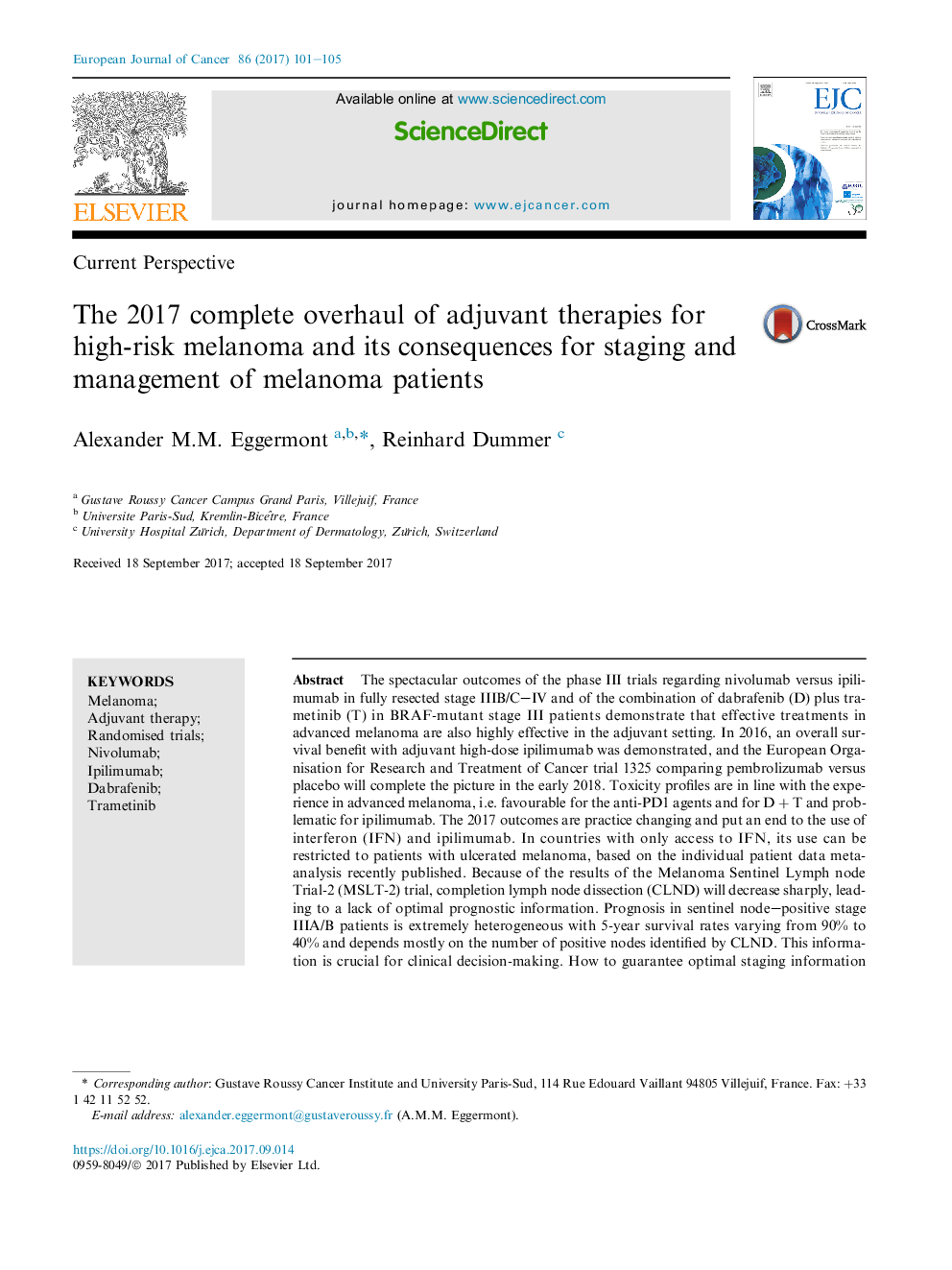| کد مقاله | کد نشریه | سال انتشار | مقاله انگلیسی | نسخه تمام متن |
|---|---|---|---|---|
| 5526158 | 1547046 | 2017 | 5 صفحه PDF | دانلود رایگان |

- Adjuvant therapy with nivolumab in stage IIIB/C-IV melanoma patients is superior to adjuvant therapy with ipilimumab.
- Adjuvant therapy with the combination of dabrafenib and trametinib is superior to placebo in stage IIIA(>1 mm)/B/C melanoma patients.
- These findings will put an end to the use of adjuvant ipilimumab.
- Adjuvant interferon remains an option only for patients with ulcerated melanoma.
The spectacular outcomes of the phase III trials regarding nivolumab versus ipilimumab in fully resected stage IIIB/C-IV and of the combination of dabrafenib (D) plus trametinib (T) in BRAF-mutant stage III patients demonstrate that effective treatments in advanced melanoma are also highly effective in the adjuvant setting. In 2016, an overall survival benefit with adjuvant high-dose ipilimumab was demonstrated, and the European Organisation for Research and Treatment of Cancer trial 1325 comparing pembrolizumab versus placebo will complete the picture in the early 2018. Toxicity profiles are in line with the experience in advanced melanoma, i.e. favourable for the anti-PD1 agents and for D + T and problematic for ipilimumab. The 2017 outcomes are practice changing and put an end to the use of interferon (IFN) and ipilimumab. In countries with only access to IFN, its use can be restricted to patients with ulcerated melanoma, based on the individual patient data meta-analysis recently published. Because of the results of the Melanoma Sentinel Lymph node Trial-2 (MSLT-2) trial, completion lymph node dissection (CLND) will decrease sharply, leading to a lack of optimal prognostic information. Prognosis in sentinel node-positive stage IIIA/B patients is extremely heterogeneous with 5-year survival rates varying from 90% to 40% and depends mostly on the number of positive nodes identified by CLND. This information is crucial for clinical decision-making. How to guarantee optimal staging information needs to be discussed urgently. Further improvements of adjuvant therapies will have to address all these questions as well as the exploration of neoadjuvant use of active drugs and combination approaches. Important paradigm shifts in the management of high-risk melanoma patients are upon us.
Journal: European Journal of Cancer - Volume 86, November 2017, Pages 101-105